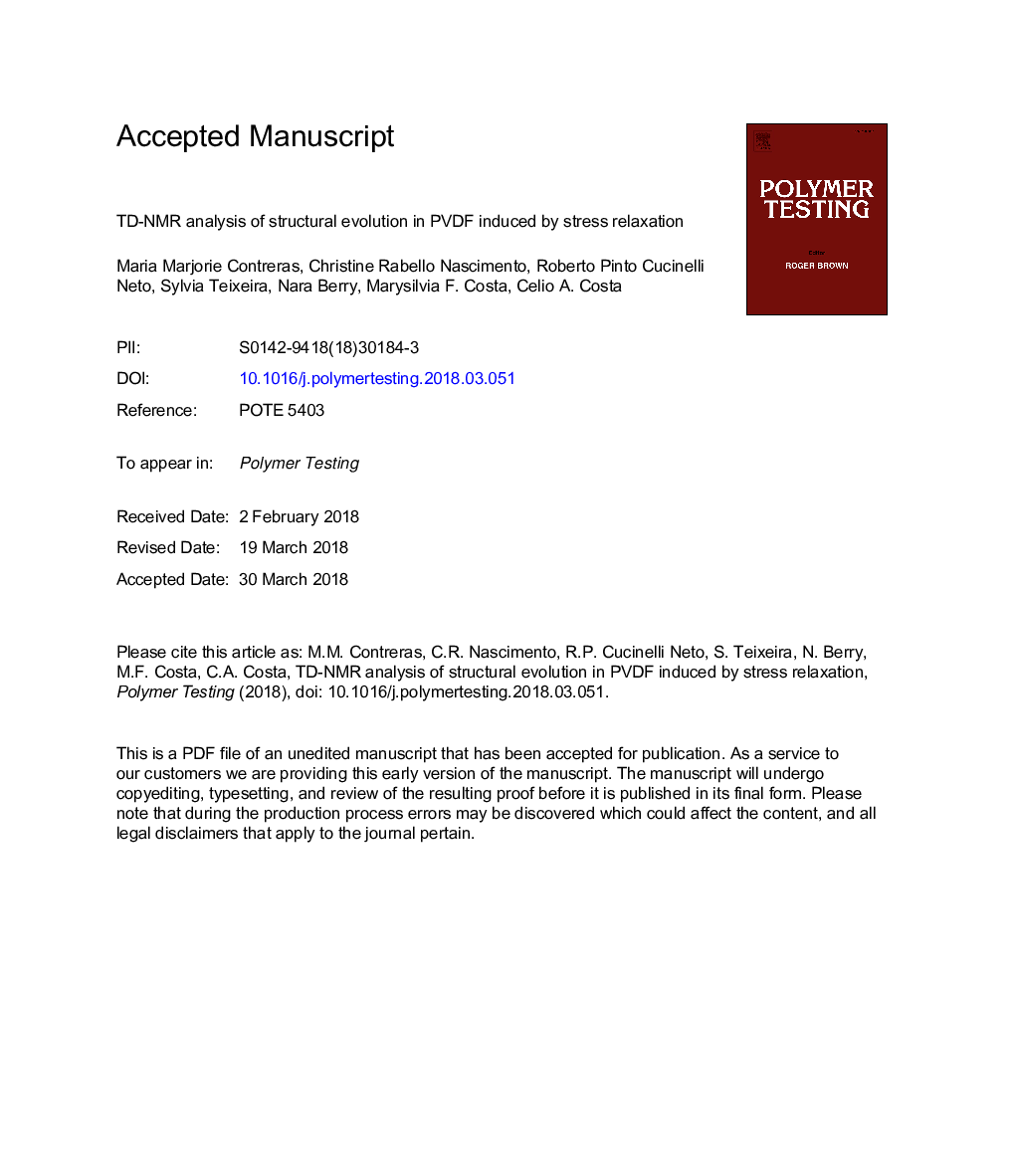| Article ID | Journal | Published Year | Pages | File Type |
|---|---|---|---|---|
| 7824879 | Polymer Testing | 2018 | 26 Pages |
Abstract
Poly(vinylidene fluoride) was relaxed at different temperatures (23, 80 and 120â¯Â°C) and strains (3.5, 7 and 10%) during 24â¯h. The material, as processed and all relaxed conditions, was characterized by tensile tests and time-domain nuclear magnetic resonance (TD-NMR). Tensile tests after stress relaxation showed a huge drop in the elastic modulus, varying from 30% to 45% compared to the as processed material. The TD-NMR technique allowed to correlate the variation of the mechanical property with the evolution of the structure inside the material, namely, decrease of crystalline fraction and increase of constrained amorphous region due to the stress relaxation. However, the free amorphous fraction did not undergo a significant change. The structure evolution described above occurred in nanoscale, even for the smallest strain (3.5%) and the lowest temperature (23â¯Â°C) tested here, while no visual change on the specimens was noticed, even for the extreme conditions (10% and 120â¯Â°C).
Related Topics
Physical Sciences and Engineering
Chemistry
Organic Chemistry
Authors
Maria Marjorie Contreras, Christine Rabello Nascimento, Roberto Pinto Cucinelli Neto, Sylvia Teixeira, Nara Berry, Marysilvia F. Costa, Celio A. Costa,
